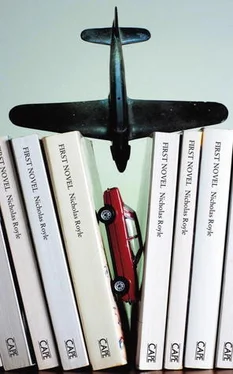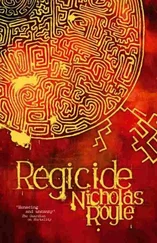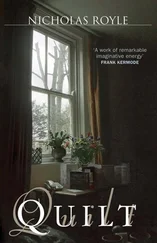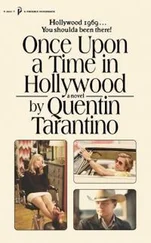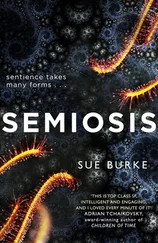‘I’m writing about south Manchester, too,’ I say. ‘Using real places, actual locations.’
‘Really?’ That she doesn’t look back at me immediately as she says this tells me she is more interested than she appears.
‘Well, it’s very early stages. I’m not really writing, just researching.’
‘How do you research?’ she asks, finally turning back towards me.
‘I hang around the airport, watch the planes, talk to pilots. Drive around Cheadle and Heald Green at night. I find it very fertile ground. Stories grow there. Industrial areas that change character after dark. Business parks with one or two poorly paid security guards nodding off over their screens and car parks full of Mercedes and Audis.’
‘Sounds fascinating,’ she says, deadpan.
I try out a little laugh and she smiles.
‘I’d best be off,’ she says.
At the door, she turns and says, ‘Maybe I should check out Cheadle? Get more of a sense of place.’
I wait. We both know I can’t be the one to suggest it.
‘I could go with you,’ she says at last.
‘Good idea,’ I say. ‘I’ll email you.’
After she has gone I return to my desk and pick up Helen’s typescript. I put it back on the pile of papers next to the PC and leaf through what’s there. There are several cuttings from the Guardian . More writers’ rooms. Here’s Michael Frayn’s. Some reference books on the desk, a German dictionary. The same one I have at home, I see. The same typeface on the thick spine. I wonder what he uses his for. I remember buying Michael Frayn novels for Veronica after she had read and enjoyed Headlong . I had thought of him as a playwright, primarily, before Headlong came out and was shortlisted for a prize or won a prize, but then I would come across his earlier novels in second-hand bookshops while browsing to add to my Penguin shelves. I remember buying one novel in particular and giving it to Veronica and her saying, ‘I’ve read this one. You bought me this one in hardback,’ and I remembered I had picked up an ex-library edition, very cheap, somewhere. Perhaps in a library.
I carry on through the pile of cuttings. Sarah Waters. Not a book in sight. Instead she has a map of the world and a poster on the wall with a wartime motto: ‘KEEP CALM AND CARRY ON’. Hilary Mantel’s room is also book-free. She writes in the main room of her flat in a converted Victorian asylum in Surrey. There’s no stuff or clutter. She has the same desk as Andrew O’Hagan and Antonia Fraser. A. S. Byatt’s room looks more like my own with its ‘purposeful disorder’, a glass case of large insects and another German dictionary. There’s a row of books on the window ledge, where they will spoil in the sun, their titles only half visible.
I sit at my desk in my study at the top of the house. The laptop is open but I am not writing. I had been looking at websites of office furniture suppliers, but the screen has gone dark through lack of use. I am actually looking at the seven pieces of red moulded plastic lined up on the desk next to it. These came out of the mound of rubble and crap in the back garden. They are all obviously from the same source, originally part of some coherent object that has been broken apart. The temptation is to try to fit them together, as if they were part of a jigsaw puzzle, but I have tried and it is clear that many pieces are missing. Three of the seven fragments I have are flat, four are curved. There are no markings or patterns, no scraps of any other material present. I have washed them in warm soapy water to remove any trace of the various other substances found in the landfill.
‘What do you think, Cleo?’ I ask the cat curled up in the armchair behind me. ‘What do these come from? What are they? Eh?’
I pick up the biggest piece and slot my thumb into its curved hollow. I get up and move away from the desk. Cleo stirs, but remains where she is.
‘What about you, Mr Fox?’ I look at the stuffed fox’s head as I stroke the red plastic with the pads of my fingers. ‘What do you think? What do you have to say?’
I remember being in the back of a car, my parents’ car. It was late, dark outside. My father was driving slowly, then speeding up, then slowing down again. He was leaning across my mother to see out of her window. They were trying to read house numbers in the darkness, looking for a particular address. He would slow down, they would both rake their eyes over the porches and doorsteps and brick walls and pebbledash and either see a number or not see one, and the car would roll slowly forwards, then my father would step on the accelerator once more, always a second or two before returning his gaze to the road ahead.
I saw it first. The golden flank, white underparts, face turned towards the oncoming car. Imprinted on the Kodak paper of the suburban night by flashgun headlamps. And then my father put his foot down again. I cried out, too late. The impact rocked the car, my father standing on the brake pedal. He got out and picked the animal up and laid it across my mother’s lap. Her face was white. I watched in rapt silence as a trickle of dark blood escaped from the corner of the fox’s mouth.
I knew the animal was dead, but the gentle motion of the car gave it the illusion of life.
And then, every time my father turned a corner, the fox’s head lolled and swung on its broken neck.
A week later, my father presented me with the fox’s head on a mahogany mount. I called him Mr Fox.
That evening, I am returning from Tesco with a loaf of bread and a bottle of milk, thinking about the student who came to see me after Helen. His name is either Lawrence Duncan or Duncan Lawrence. Either or. I can never remember which. There will be a list somewhere with his name on it, but probably accessible only from the PC at work and not from my Mac. His email address doesn’t help, since it includes neither of his names. I have asked him once or twice to remind me, pleading forgetfulness, but it is not forgetfulness that is to blame. It is rather that I know that both variations are possible and so I find it impossible to distinguish between them. Like hot and cold. Sometimes I will look at the taps on a washbasin, even ones affixed with a blue or red spot, and I don’t know which one to turn.
Like on and off. Televisions have become so complicated, having so many external devices. Standby, remote on/off, hard switch-off. Sometimes I don’t know whether it’s on or off.
Life and death is another. There are numerous well-known public figures who could be alive or may be dead. Members of the royal family. Is the Queen Mother alive or dead? Sometimes I know she is dead, at other times I think she may still be alive. Film actors. Directors. Sam Peckinpah. Is he alive or dead? Joseph Losey? Jazz musicians. Gerry Mulligan? Is he dead? I think so, but I’m not sure. Herbie Hancock? I might have said dead, but I saw he made a new record and was touring recently, so presumably still alive. Even members of my own family. Cousins. Aunts, uncles. My wife.
It’s not that I think there is little difference between being alive and being dead. It is that I cannot distinguish between the two. Almost as if I cannot choose.
Lawrence Duncan — or Duncan Lawrence — is in his first year on the MA. He is a promising student. He and Helen and others like them are easy to teach. Mostly what you do is encourage them, give them the confidence they need. Every time I see Lawrence Duncan — or Duncan Lawrence — I remember what he was like in his interview. He was so nervous he was shaking and stammering. Every time he opened his mouth to speak, he blushed to the roots of his hair. He was about twenty-three and had spent two or three years since graduating, in English, doing various jobs and reading a lot, he said. The portfolio he had submitted with his application, however, had been outstandingly good and when he started work on his novel and submitted chapters to be workshopped, the reaction from his fellow students and from myself had given him that confidence. He was writing about a group of young people in a very contemporary idiom and was doing so with a certain flair.
Читать дальше
